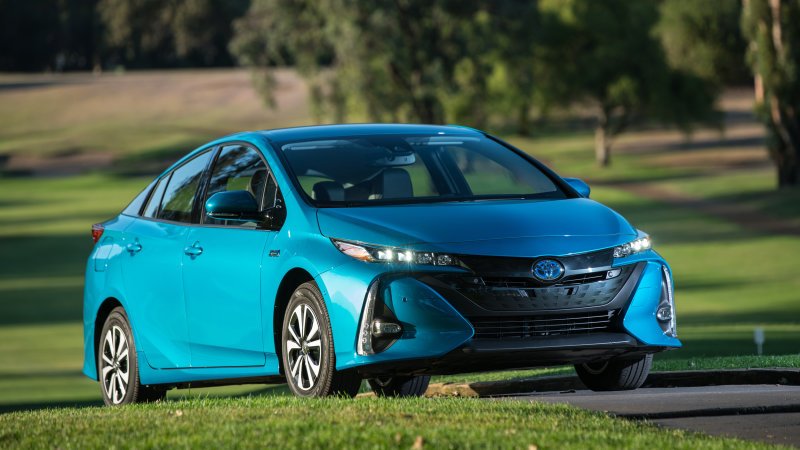Toyota jumping into electric vehicle mass production by 2020

This could be an abrupt shift from the company's focus on fuel-cell electric vehicles, as BEVs have been absent from any of Toyota's announced or rumored future vehicles. The plan would coincide with the 2020 Tokyo Olympics, of which Toyota is a major sponsor. Toyota's official statement, in full below, says it will consider development of EVs without providing specific details.
Toyota popularized electrification of a sort with the Prius hybrid, and spread the gas-electric powertrain concept across its lineup, including Lexus models. A logical progression is to move towards plug-in and battery electric vehicles, but Toyota has been relatively short with offerings of either of those vehicle types. The original Prius plug-in was a retrofit half-measure, and only operated as a full electric in limited situations. Toyota made two versions of the RAV4 EV. The first was available only in California from 1997 to 2003, and about 1,500 were leased. Then, from 2012 to 2015 Toyota sold a completely different second-generation RAV4 EV, jointly developed with Tesla. It sold less than 2,500 units. Toyota can no doubt catch up fast, however, as the 2017 Prius Prime offers an impressive combination of electric range and fuel economy.
And there is significant catching up to do. The Nikkei Asian Review cites that the full-court press of BEVs from Toyota will travel 300 kilometers or more on a charge. That's 186 miles, so clearly that's a conservative estimate if Toyota's efforts will be taken seriously in the market. The 2017 Chevrolet Bolt EV has an EPA-rated 238 miles of range, and the upcoming second-generation Nissan Leaf is expected to top 200 miles as well. And yes, Tesla promises at least 215 miles of range for the Model 3, whenever it reaches production.
Of late, Toyota has pushed fuel-cell vehicles such as the Mirai. Many Toyota and Lexus concept cars have also featured fuel cell powertrains, such as the Lexus LF-FC. Toyota's statement to Autoblog on the topic of EVs does not confirm any details the Nikkei Asian Review report, but states that any potential development will happen in parallel with fuel-cell vehicles:
"We would like to refrain from commenting on such details, such as the schedule of development and production since it relates to our future product plan.
Toyota has made efforts in every direction on various powertrains, including electric vehicles (EVs), when it comes to the development of environmentally friendly vehicles. Toyota will continue to improve on the development of eco-cars, ranging from hybrids (HVs) and plug-in hybrids (PHVs), to electric and fuel-cell vehicles (FCVs), based on the advantages and capabilities of each powertrain.
We believe that environmentally friendly vehicles can only help to improve the environment if they become available to a large number of customers, and in relation to this, Toyota will consider introducing EVs to the market.
We will consider the roll-out of EVs alongside Toyota's FCV lineup, which are both zero emission vehicles, based on the advantages and capabilities of each, as well as the market conditions of each region/country, as we continue to closely monitor the corresponding situations."
Nouvelles connexes


